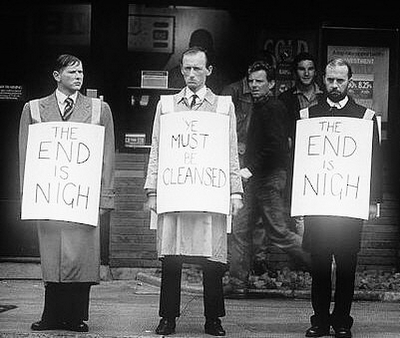Delivering Sustainability in the Face of Despair

A week after the 9/11 attacks in the US, I attended a community environmental engagement workshop in a Teesside town. I can’t remember exactly why I was there (it was probably in support of a community composting project I was doing at the time), but I do remember the facilitator. She rambled on for so long about how 9/11 was going to impact the world negatively, and whether environmental issues mattered any more in the aftermath, that no-one in the room seemed inspired to do anything.
In March 2020, as the Covid-19 virus turned from an item towards the end of TV news bulletins into the reality of lockdown, I thought “who’s going to want to talk Sustainability now?” The answer, happily, was “everybody” and I had the two most successful years since I started the business, which not only pleased my accountant, but was a strong sign that Sustainability would, well, sustain itself in the face of adversity. I had to adapt to the reality of the virus, moving almost everything online and balancing work with home schooling, but the business thrived.
I’ve spent the last 3 days bikepacking (cycle touring with minimal gear) around Northumberland, getting extremely wet and having a lot of type 2 fun (I’ve never forded a metre deep river with a laden bike on my back before). On Saturday night, the only internet connection I could get was at the lone pub in Kielder where I was refuelling and drying out. I saw the headlines about the attacks in Israel, but decided not to click on them until I got home last night. I’m glad I refrained – the horrors inflicted on so many innocent people have left me stunned and it’s clear things in the Middle East are likely to get worse before they get better.
It is natural to let these big global events knock us off our stride for a bit. But it is essential not to wallow in doom, like that facilitator back in 2001. We already have a neologism, solastalgia, to describe depression due to environmental change – we don’t need to add more grief to the burden. I recently saw someone I respect attacking eminent climate scientist Michael Mann for saying there was still a window to prevent climate disaster. I decided not to respond, but what’s the point in publicly shouting “we’re all doomed!” – what good does it do? I grind my teeth when people tell me that them cutting their carbon footprint, their organisation acting or even the country hitting Net Zero will make negligible different to climate change. The answer is that if everybody thought that, nothing will change. Doom inhibits action, and preaching doom deflates others.
I remain optimistic, because only if we believe we can make the world a better place, will it become a better place. History is full of events much more horrific than those we face today – despite the headlines, we live in relatively peaceful times. The climate crisis is undoubtedly the biggest challenge we face, but that’s a reason to roll our sleeves up and redouble our efforts, to inspire and educate others, and to make change happen. Even typing that makes me feel much better about the world!

